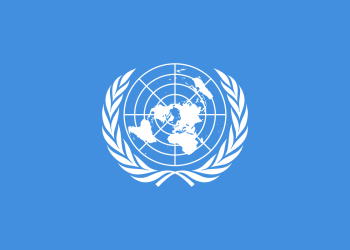On 23 January the Legal Department of Libya’s Ministry of Justice issued a legal opinion clarifying the scope of Law No. 9 of 2010 on the Promotion of Investment on permitted investment structures for foreign investors in Libya.
The legal opinion was interpreted to confirm that foreign investors in Libya may operate through a Libyan branch or through any other legal form.
It was also interpreted to confirm that foreign investors are permitted to invest in Libya on a 100 percent ownership basis – that is, without the participation of Libyan shareholders – except in the oil and gas sector. Law No. 9 was deemed to not apply to oil and gas projects.
However, leading Libyan law firm, Tumi Law Firm, says careful reading of the Ministry of Justice’s 11-4-2 Legal Opinion on Foreign Direct Investment (FDI) and its implications on the Oil and Gas Investment Industry leads to a different interpretation.
Tumi Law Firm says that, prima facia, the Libyan Ministry of Justice Legal Department’s opinion and response to the Deputy Minister of Economy is indeed a reassuring legal opinion to foreign investors. It reinforces that foreign investment can take many legal forms and is thus not restricting nor confining foreign investment to establishing branches as projected by the Deputy Minister of Economy.
Foreigners have since 2010 been able to own up to 100 percent of projects in Libya
Tumi Law Firm says the legal opinion brings no originality nor novelty as it re-emphasised what it has already been advising its clients; that foreigners can own up to 100 percent of projects in Libya. While some interpret this as ground-breaking, Tumi Law Firm says it has been legally guiding many of its clients on 100 percent investment ownership since 2010.
The Ministry of Justice Legal Department has made a significant errorThe Ministry of Justice Legal Department, however, has arguably made a significant error; albeit unnoticeable to many, Tumi Law Firm says. The Ministry of Justice in its concluding remarks, stated that Law No. 9 for the year 2010 on Investment Promotion and its Executive Regulations issued by General People’s Committee Resolution No. 499 of the year 2010 ‘does not apply to all oil and gas projects’. Thereby implying that foreign natural (individuals) and legal (companies) persons cannot independently own 100 percent of oil and gas projects.
A clear misreading of Law No. 9Tumi Law Firm says this is a clear misreading of Law No. 9, as the Ministry of Justice Department is failing to consider Article 8 of the aforementioned law which delegated the Executive regulation No. 499 to determine the permitted fields of investment which did in turn do so in Article 4.
Article 4 of the Executive Regulation No. 499 plainly states that “investment…shall be allowed in all the production and servicing fields with exception of exploration, extraction, and marketing of oil and gas”.
Blanket ban on investment in the oil sector does not exist
A blanket ban, that is seen in the legal opinion, Tumi Law Firm insists, does not exist within Libyan law on Investments nor its relative Executive Regulation. This is predominantly because whilst the activities of exploration, extraction and marketing of oil and gas are not permitted for foreign investors, the activity of ‘surfacing’ however, such as refinery, is indeed a permitted field of investment under Law No. 9 and the subsequent executive regulation.
Foreign investor LERCO had obtained a license to invest
Tumi Law Firm points out that many of its foreign (natural and legal) investor clients, such as LERCO, had indeed obtained a license to invest in the field of surfacing under the umbrella of Law No. 9. As such, it is a grave omission from the part of the Minster of Justice Department to place a blanket ban on foreign participation on all types of activities within the field of oil and gas.
Libya’s Civil Law system means the legal opinion is not binding
Despite this legal opinion, Tumi Law Firm says, fortunately, Libya’s Civil Law system means that a legal opinion such as 11-4-2 is not binding nor obligatory on those it is not addressing by name. Article 4 of the Executive Regulation, therefore, will supersede the Ministry of Justice Department’s legal opinion, and such a blanket ban will not have any legal implications on foreign investors.
Libyan law will prevail over legal opinion despite possible legal challenges
Having said that, however, this does not mean that such opinion cannot open floodgates of litigation for foreign investors already operating in the oil activity of surfacing. Their operation in this activity will be questioned by many in the light of the Ministry of Justice Department’s Legal Opinion. To this end, Tumi Law Firm reassures current and potential foreign investors that Libyan law will prevail over the legal opinion.
Libya Herald does not accept any responsibility for any implied legal advice by contributors in any of its articles. Readers must seek their own legal advice.









